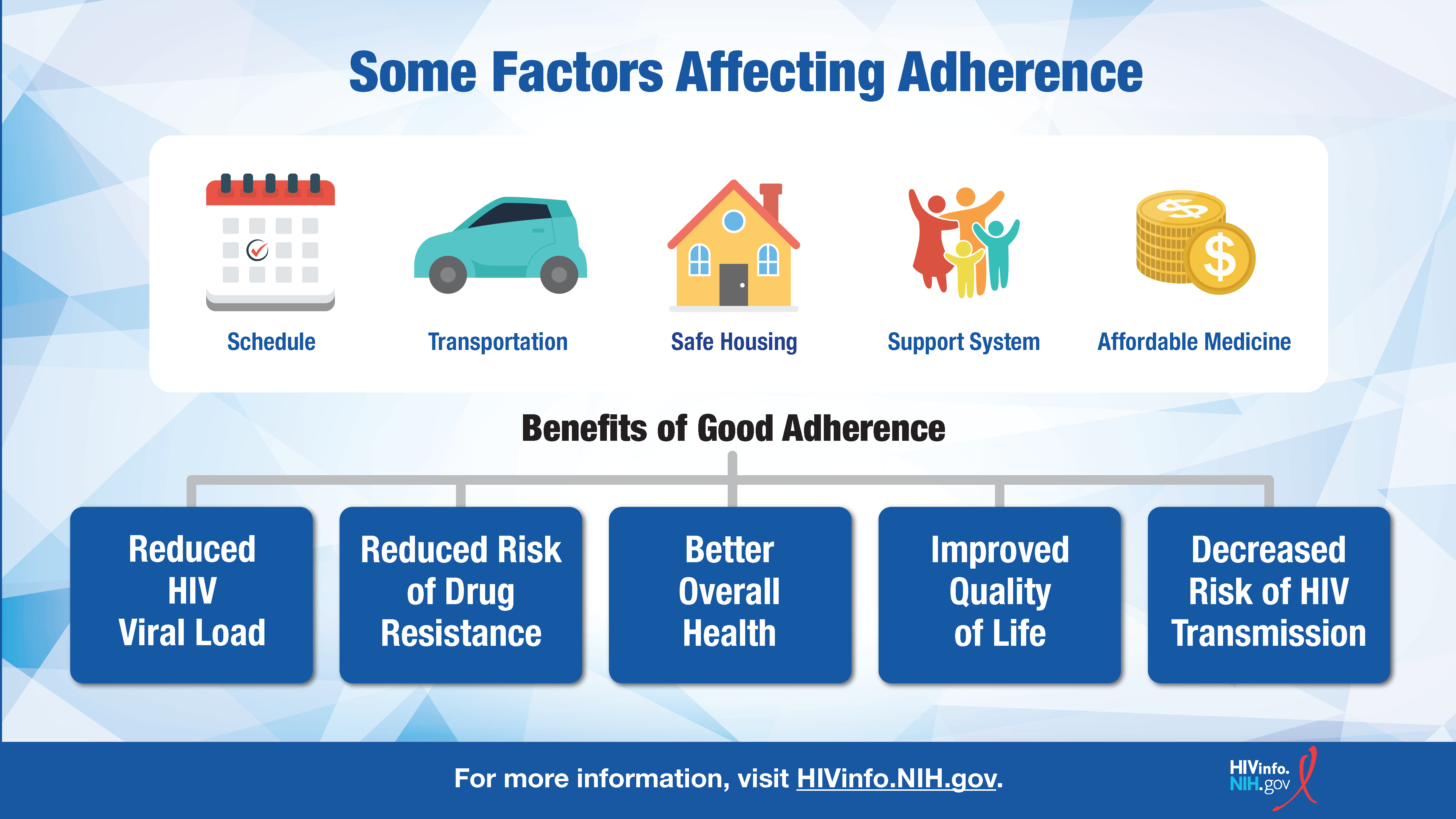Following an HIV Treatment Regimen: Steps to Take Before and After Starting HIV Medicines
Key Points
- Medication adherence is essential to make sure HIV treatment is as effective as possible.
- Before starting an HIV treatment regimen, tell your health care provider if there are any reasons that could make it hard for you to follow a treatment regimen. Some examples include difficulty swallowing pills, financial difficulties, unstable housing, or a busy schedule.
- After starting an HIV treatment regimen, medication aids such as pill boxes, apps, and medication diaries can help to maintain long-term medication adherence.

What should you do before starting an HIV treatment regimen?
Talking with your health care provider will help you understand why you are starting HIV treatment and why medication adherence is important. Medication adherence means sticking to an HIV treatment regimen—taking HIV medicines as scheduled and exactly as prescribed.
Treatment with HIV medicines (called antiretroviral therapy or ART) is recommended for everyone with HIV. When taken as prescribed, HIV medicines help people with HIV live long, healthy lives. Adherence to an HIV treatment regimen also reduces the risk of drug resistance and HIV transmission.
What should you tell your health care provider before starting an HIV treatment regimen?
Tell your health care provider about other prescription and nonprescription medicines, vitamins, nutritional supplements, and herbal products you are taking or plan to take. Other medicines or products you take may interact with HIV medicines, causing a drug interaction. A drug interaction may affect how an HIV medicine works or cause side effects. To learn more, read the HIVinfo What is a Drug Interaction? fact sheet.
Tell your health care provider about any issues that might make adherence difficult. For example, people who have difficulty swallowing pills or people who do not have health insurance may find it hard to stick to an HIV treatment regimen. Other issues could include a busy schedule, lack of transportation, lack of stable housing, HIV medicine side effects, substance use, and fear of judgment. To learn more, read the HIVinfo HIV Treatment Adherence fact sheet.
Describe your daily schedule to your health care provider. You and your health care provider can work together to design an HIV medication schedule that fits in with your day-to-day routine.
Ask your health care provider for written instructions on how to follow your HIV treatment regimen. The instructions should include information about how, when, and how much of the medicine you should take.
What are the best ways to stick to an HIV treatment regimen?
To maintain adherence, try some of the following strategies:
- Use a 7-day pill box. Once a week, fill the pill box with your HIV medicines for the entire week.
- Take your HIV medicines at the same time every day.
- Set an alarm on your cell phone to remind you to take your medicines.
- Ask a family member or friend to remind you to take your medicines.
- Plan and prepare for changes in your daily routine, including weekends and holidays. If you are going away, pack enough medicine to last the entire trip.
- Use an app or a medicine diary (online or on paper) to record each medicine as you take it. Reviewing your diary will help you identify the times that you are most likely to forget to take your medicines.
- Keep all of your medical appointments. Be sure to refill your prescriptions before you run out of HIV medicines.
What should you do if you forget to take your HIV medicines?
Unless your health care provider tells you otherwise, take the medicine you missed as soon as you realize you missed a normal dose, unless it is almost time for the next dose. Do not take a double dose of an HIV medicine to make up for a missed dose.
Tell your health care provider if you are having difficulty following your treatment regimen. Do not forget to mention any side effects you are having. Side effects from HIV medicines (or from other medicines that you are taking) can interfere with medication adherence for any reason.
This fact sheet is based on information from the following sources:
From the NIH Office of AIDS Research:
- Guidelines for the Use of Antiretroviral Agents in Adults and Adolescents With HIV:
From the Health Resources and Services Administration:
From HIV.gov:
From the U.S. Department of Veterans Affairs:
Also see the HIV Source collection of HIV links and resources.
